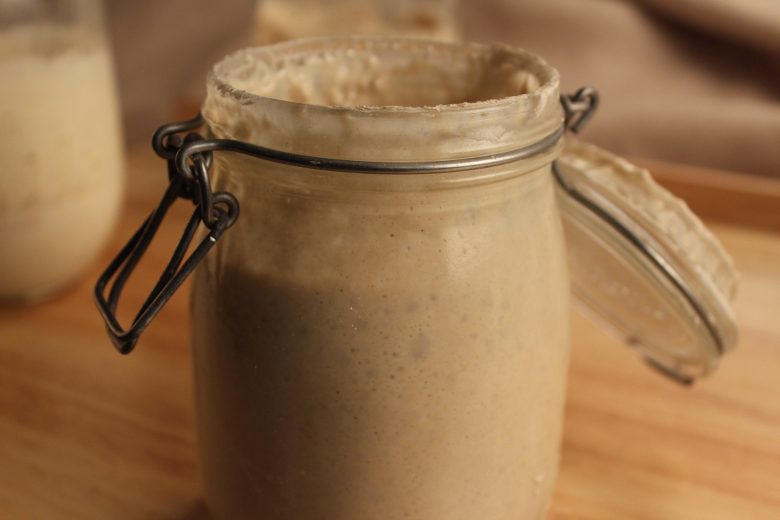Monheim Salt-Sour Process
The Monheim Salt-Sour process is a one stage sourdough process with a very long standing tolerance. The maturity time is 18-24 hours and the workable timeline can be up to 3 days. The sourdough is mixed with 2% salt calculated from the amount of flour in the sourdough. The salt inhibits yeast growth and prevents the sourdough from aging. In the dough itself, it ensures a better balance and a finer and more even crumb.
The bread flavor is well-round and at the same time, mildly sour (somewhat flat in taste). The starter amount is 20% of the amount of rye flour to be soured for the sourdough. The high amount of starter used is required because the activity of the microorganisms is limited. The sourdough consistency is very soft with a TA 200.
The temperature of the sourdough is 35°C at the beginning and falls during the maturity to 20-25°C. Then the sourdough can be kept for up to 72 hours. With a standing time longer than 48 hours it is beneficial to reduce the amount of sourdough used for the main dough by 5%.

The bread dough gets an addition of 1.5-2% yeast, calculated from the total flour amount, to help leaven the dough. The amount of salt in the sourdough must be taken into account when making the main dough.
The amount of rye flour to be acidified is 50-100% for mixed wheat bread, 40% for mixed rye bread and 30-35% rye flour for rye bread. General note: The amount of starter for the next batch should be taken after about six hours of maturing (this is where the microorganisms have their highest activity).
If the processing time of the finished sourdough is 48-72 hours, the sourdough must be stored at 20°C. Process parameters:
- Amount of rye flour to be soured 30-40%
- Starter amount 20%
- Salt addition 2%
- Hydration (TA) 100% (200)


